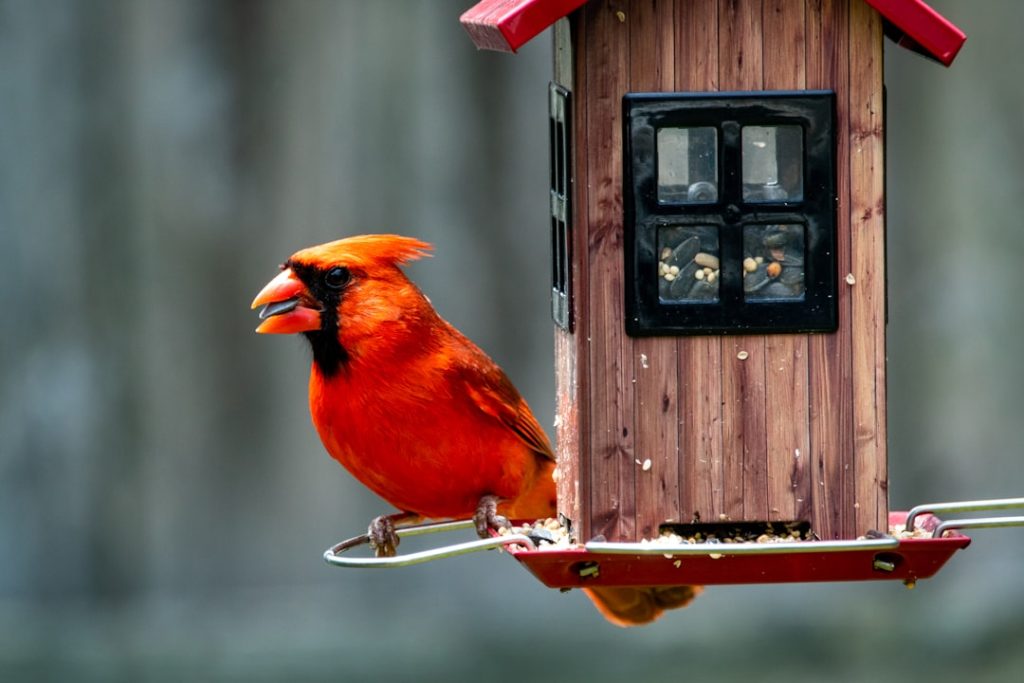In recent years, the practice of keeping backyard chickens has experienced a significant upswing in popularity across urban, suburban, and rural areas. This trend is driven by several factors, primarily the growing interest in sustainable living and food self-sufficiency. Many individuals are becoming increasingly aware of food sourcing issues and are seeking ways to reduce their dependence on commercial food production systems.
Backyard chicken keeping provides a direct source of fresh eggs and potentially meat, allowing people to actively participate in their own food production. The desire for a stronger connection to nature and the food production process is another key factor contributing to this trend. In an increasingly digital and fast-paced world, many individuals are searching for ways to reconnect with natural processes and simplify their lifestyles.
Keeping chickens offers a daily routine that aligns with natural rhythms and provides a tangible link to food origins. Furthermore, the process of raising and caring for chickens can be both educational and rewarding for adults and children alike, fostering an appreciation for nature, hard work, and responsibility.
Table of Contents
- 1 The Benefits of Keeping Chickens in Your Backyard
- 2 The Legalities and Regulations of Backyard Chicken Keeping
- 3 The Costs and Responsibilities of Raising Chickens at Home
- 4 How to Get Started with Backyard Chicken Keeping
- 5 Common Misconceptions About Keeping Chickens in Your Backyard
- 6 The Impact of Backyard Chicken Keeping on Sustainable Living and Food Security
- 7 FAQs
- 7.1 What is the trend of keeping backyard chickens in America?
- 7.2 How many Americans keep backyard chickens?
- 7.3 What are the reasons for keeping backyard chickens?
- 7.4 What are the benefits of keeping backyard chickens?
- 7.5 Are there any regulations or restrictions on keeping backyard chickens in America?
Key Takeaways
- Backyard chicken keeping is a growing trend, with more people choosing to raise chickens at home for fresh eggs and as pets.
- Keeping chickens in your backyard has numerous benefits, including a sustainable source of fresh eggs, natural pest control, and a fun and educational experience for the whole family.
- It’s important to be aware of the legalities and regulations surrounding backyard chicken keeping, as different areas may have specific rules and restrictions.
- Raising chickens at home comes with costs and responsibilities, including providing proper housing, food, and healthcare for the chickens.
- Getting started with backyard chicken keeping involves researching and planning for the needs of the chickens, including choosing the right breed, setting up a coop, and understanding their dietary and environmental requirements.
- Common misconceptions about backyard chicken keeping include the belief that it’s difficult or unsanitary, when in fact, with proper care and maintenance, it can be a rewarding and sustainable practice.
- Backyard chicken keeping can have a positive impact on sustainable living and food security, as it promotes self-sufficiency and reduces reliance on store-bought eggs.
The Benefits of Keeping Chickens in Your Backyard
Fresh and Nutritious Eggs
One of the most obvious benefits of keeping chickens is the access to fresh, organic eggs. Unlike store-bought eggs, which may have been sitting on shelves for weeks, backyard eggs are typically much fresher and have a richer flavor. Additionally, backyard eggs are often higher in nutrients, as the chickens have access to a more varied diet, including insects and plants, compared to commercially raised chickens.
A Cost-Effective Source of Meat
In addition to eggs, keeping chickens can also provide a source of meat for those who choose to raise broiler chickens. This can be a cost-effective way to have access to high-quality, humanely raised meat.
Natural Pest Control and Emotional Rewards
Furthermore, chickens can also serve as natural pest control in the garden, as they will eat insects and help keep the garden free from pests. Beyond the practical benefits, many people find that keeping chickens can also be emotionally rewarding. Chickens are social animals and can provide companionship and entertainment for their owners. Caring for chickens can also be a therapeutic activity, providing a sense of purpose and connection to the natural world.
The Legalities and Regulations of Backyard Chicken Keeping

Before embarking on backyard chicken keeping, it is important to be aware of the legalities and regulations that may apply in your area. While keeping chickens is generally allowed in many urban and suburban areas, there are often specific regulations regarding the number of chickens allowed, coop requirements, and distance from neighboring properties. It is important to research and understand these regulations before getting started, as violating local ordinances can result in fines or having to rehome your chickens.
In addition to local regulations, it is also important to consider any homeowners’ association rules that may apply to your property. Some homeowners’ associations have specific restrictions on keeping livestock or poultry, so it is important to review your community’s guidelines before bringing chickens onto your property. Furthermore, it is important to consider the welfare of the chickens and ensure that you are able to provide them with a safe and comfortable living environment.
This includes providing adequate space, shelter, and access to food and water, as well as regular veterinary care.
The Costs and Responsibilities of Raising Chickens at Home
While there are many benefits to keeping chickens in your backyard, it is important to consider the costs and responsibilities associated with raising chickens at home. There are initial costs associated with setting up a chicken coop and purchasing necessary supplies such as feeders, waterers, bedding, and feed. Additionally, there may be ongoing costs for feed, bedding, and veterinary care.
It is important to budget for these expenses and consider whether you have the financial resources to care for chickens over the long term. In addition to financial costs, it is also important to consider the time and effort required to care for chickens. Chickens require daily care, including feeding, watering, cleaning the coop, and collecting eggs.
They also require regular health checks and may need treatment for parasites or other health issues. It is important to consider whether you have the time and commitment to provide proper care for chickens before getting started with backyard chicken keeping.
How to Get Started with Backyard Chicken Keeping
If you are considering getting started with backyard chicken keeping, there are several key steps to take to ensure a successful and enjoyable experience. The first step is to research and understand the local regulations and ordinances that may apply in your area. This will help you determine how many chickens you are allowed to keep, as well as any specific requirements for coop construction and placement.
Once you have a clear understanding of the legalities and regulations, the next step is to set up a suitable living environment for your chickens. This includes building or purchasing a chicken coop that provides adequate space, ventilation, and protection from predators. You will also need to invest in essential supplies such as feeders, waterers, bedding, and feed.
It is important to ensure that your chickens have access to fresh water and a balanced diet to support their health and well-being. After setting up the living environment, you will need to select your chickens. There are many different breeds of chickens available, each with its own unique characteristics and egg-laying abilities.
It is important to choose breeds that are well-suited to your climate and living situation. Once you have acquired your chickens, it is important to provide them with regular care and attention, including feeding, watering, cleaning the coop, and monitoring their health.
Common Misconceptions About Keeping Chickens in Your Backyard

Myth: Chickens are Noisy and Disruptive
One common misconception is that keeping chickens is noisy and disruptive to neighbors. However, this is not entirely true. While roosters can be loud, hens are generally quiet animals that make minimal noise. With proper coop design and placement, noise can be minimized, ensuring that neighbors are not disturbed.
Myth: Chickens are Dirty and Smelly
Another misconception is that keeping chickens is dirty and smelly. While it is true that chickens produce waste like any other animal, with proper coop maintenance and waste management practices, odors can be kept to a minimum. Regular cleaning of the coop and proper waste disposal can help keep the living environment clean and odor-free.
Myth: Chickens Require a Lot of Space
Some people may believe that keeping chickens requires a large amount of space. However, this is not necessarily true. While it is important for chickens to have adequate space for exercise and natural behaviors, many urban and suburban settings can accommodate a small flock of chickens with proper coop design and management practices.
The Impact of Backyard Chicken Keeping on Sustainable Living and Food Security
Backyard chicken keeping can have a positive impact on sustainable living and food security at both individual and community levels. By raising their own chickens for eggs or meat, individuals can reduce their reliance on commercial food production systems and have more control over the quality of their food. This can lead to a more sustainable lifestyle by reducing food miles and supporting local food production.
In addition to individual benefits, backyard chicken keeping can also contribute to community food security by providing a local source of fresh eggs or meat. In times of food scarcity or economic hardship, having access to home-raised food can be an important resource for individuals and families. Furthermore, backyard chicken keeping can foster a sense of community by providing opportunities for neighbors to share resources such as eggs or knowledge about chicken care.
Furthermore, by raising chickens at home, individuals can contribute to reducing food waste by utilizing kitchen scraps as chicken feed or composting chicken waste for use in gardens. This closed-loop system can help reduce overall waste production while providing valuable resources for food production. Overall, backyard chicken keeping has the potential to make a positive impact on sustainable living and food security by providing individuals with a direct source of fresh food while reducing reliance on commercial food production systems.
If you’re one of the many Americans keeping backyard chickens, you may be interested in learning about the Producers Pride Sentinel Chicken Coop. This coop, featured in an article on Poultry Wizard, offers a secure and spacious home for your feathered friends. With the right coop and run plans, like those also available on Poultry Wizard, you can ensure that your chickens are happy and healthy. And if you’re considering adding ducks to your backyard flock, you can find helpful information on what to feed them in another article on Poultry Wizard. https://poultrywizard.com/keeping-chickens/producers-pride-sentinel-chicken-coop/
FAQs
What is the trend of keeping backyard chickens in America?
The trend of keeping backyard chickens in America has been steadily increasing over the past decade. More and more Americans are choosing to raise their own chickens for eggs and meat.
How many Americans keep backyard chickens?
According to the 2019-2020 National Pet Owners Survey conducted by the American Pet Products Association, approximately 1% of American households keep chickens as pets or for egg production.
What are the reasons for keeping backyard chickens?
There are several reasons why Americans choose to keep backyard chickens. Some of the common reasons include having a sustainable source of fresh eggs, teaching children about responsibility and animal care, and enjoying the companionship of chickens.
What are the benefits of keeping backyard chickens?
Keeping backyard chickens can have several benefits, including a sustainable source of fresh eggs, natural pest control in the garden, and the opportunity to engage in a rewarding and educational hobby.
Are there any regulations or restrictions on keeping backyard chickens in America?
Regulations and restrictions on keeping backyard chickens vary by city and county. Some areas have specific ordinances regarding the number of chickens allowed, coop requirements, and noise regulations. It is important for potential chicken owners to check local regulations before starting a backyard flock.
Meet Walter, the feathered-friend fanatic of Florida! Nestled in the sunshine state, Walter struts through life with his feathered companions, clucking his way to happiness. With a coop that’s fancier than a five-star hotel, he’s the Don Juan of the chicken world. When he’s not teaching his hens to do the cha-cha, you’ll find him in a heated debate with his prized rooster, Sir Clucks-a-Lot. Walter’s poultry passion is no yolk; he’s the sunny-side-up guy you never knew you needed in your flock of friends!







